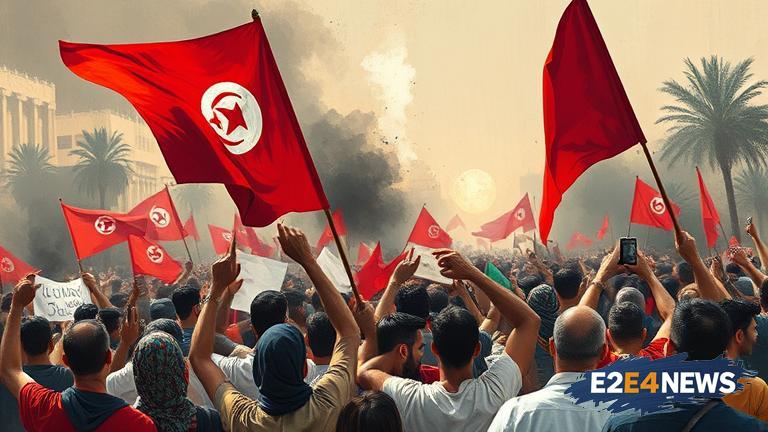Tunisia has been witnessing a surge in protests against President Kais Saied’s rule, with thousands of citizens taking to the streets to express their discontent. The protests, which have been ongoing for several weeks, are a response to Saied’s consolidation of power and the country’s deepening economic crisis. The demonstrators are demanding Saied’s resignation and the restoration of parliamentary democracy. The protests have been marked by clashes between security forces and protesters, with reports of tear gas and water cannons being used to disperse the crowds. Despite the violence, the protesters remain determined to bring about change. The economic crisis in Tunisia has been exacerbated by the COVID-19 pandemic, with rising unemployment and poverty levels. The country’s economy has been in a state of stagnation for several years, with a decline in tourism and a lack of investment. The protesters are also demanding an end to corruption and the prosecution of those responsible for the country’s economic woes. Saied, who came to power in 2019, has been accused of authoritarianism and undermining the country’s democratic institutions. His decision to suspend parliament and assume executive powers has been widely criticized by opposition parties and civil society groups. The international community has also expressed concern over Saied’s actions, with the European Union and the United States calling for a return to democratic norms. The protests in Tunisia have been supported by opposition parties, including the Islamist Ennahda party, which has been a major player in the country’s politics since the Arab Spring. The party’s leader, Rached Ghannouchi, has been a vocal critic of Saied’s rule and has called for his resignation. The protests have also been supported by civil society groups, including human rights organizations and trade unions. The Tunisian government has responded to the protests by imposing a nighttime curfew and restricting freedom of assembly. However, the protesters have vowed to continue their demonstrations, despite the risks. The situation in Tunisia remains volatile, with the potential for further escalation. The country’s future hangs in the balance, with the outcome of the protests uncertain. The international community is watching the situation closely, with concerns over the implications for regional stability. The protests in Tunisia are a reminder of the ongoing struggles for democracy and human rights in the Middle East and North Africa. The region has witnessed a wave of protests in recent years, with citizens demanding greater freedoms and an end to authoritarian rule. The situation in Tunisia is a test case for the region, with the potential to inspire similar movements in other countries. The protests have also highlighted the importance of economic development and the need for governments to address the root causes of discontent. As the situation in Tunisia continues to unfold, it remains to be seen whether the protests will bring about meaningful change or whether the government will succeed in suppressing the movement.
